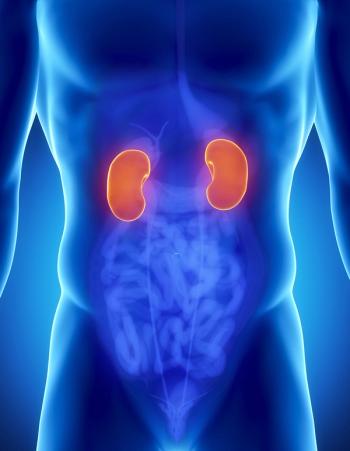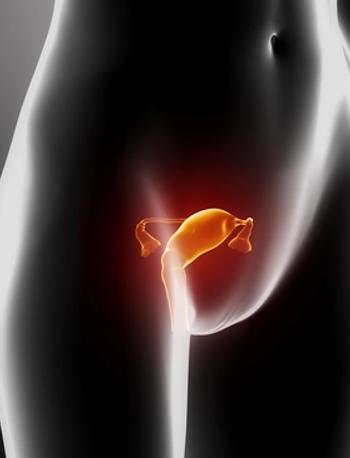
Based on results from the phase 1/2 GO29781 trial, the European Commission has approved mosunetuzumab for adult patients with relapsed/refractory follicular lymphoma.

Your AI-Trained Oncology Knowledge Connection!


Ariana Pelosci, managing editor for CancerNetwork® and the journal ONCOLOGY®, has been with the team since June 2021. She specializes in both web and print, and runs the social media accounts for CancerNetwork®.
She graduated from the University of Delaware, where she studied Media Communications and minored in journalism and marketing. At heart, she is a Jersey girl, and you can always find her down the shore during her free time.
Ariana loves to read, specifically historical or contemporary fiction. Follow Ariana on Twitter @APelosci or email her at apelosci@mjhlifesciences.com.

Based on results from the phase 1/2 GO29781 trial, the European Commission has approved mosunetuzumab for adult patients with relapsed/refractory follicular lymphoma.

Results from the phase 3 SPOTLIGHT trial showed 18F-rhPSMA-7.3 increased post-scan disease upstaging in recurrent prostate cancer.

The phase 3 HER2CLIMB-05 trial will investigate tucatinib plus standard of care maintenance in the first-line setting for patients with HER2-positive metastatic breast cancer.

Results from a correlative analysis conducted with 3-years of follow-up showed pembrolizumab monotherapy resulted in the greatest long-term survival benefit in patients with non–small cell lung cancer and a PD-L1 tumor proportion score of 90% or more.

Results from the phase 3 PEARLS/KEYNOTE-091 trial showed improved disease-free survival with pembrolizumab vs placebo for patients with completely resected early-stage non–small cell lung cancer, without regard surgical treatment, extent of disease, or adjuvant chemotherapy.

The ATHENA-MONO trial showed a significant improvement in progression-free survival when patients with platinum-sensitive ovarian cancer were treated with maintenance rucaparib vs placebo in the first-line setting, regardless of HRD status.

Elderly frail patients with relapsed/refractory multiple myeloma treated with ixazomib plus daratumumab experienced favorable response rates.

A subgroup analysis of the phase 3 MAIA trial showed rapid, deep, and durable responses with daratumumab plus lenalidomide and dexamethasone vs standard therapy for newly diagnosed multiple myeloma across patient subgroups.

Atezolizumab plus fluorouracil, leucovorin, oxaliplatin, and irinotecan resulted in a tolerable safety profile and improved progression-free survival vs the control regimen in patients with metastatic colorectal cancer.

High body mass index in patients with apparent early-stage endometrial cancer may be predictive of sentinel lymph node mapping failure and decrease overall detection rate.

Investigators indicated that comprehensive geriatric assessment could be used to determine whether older, frail patients with hematologic cancers can undergo intensive treatment with chemotherapy and whether curative treatment is viable.

Chemoradiotherapy plus cisplatin administered weekly was found to be non-inferior to cisplatin once every 3 weeks for patients with high-risk locally advanced squamous cell carcinoma of the head and neck.

A biologics license application for pegfilgrastim-pbbk was accepted by the FDA for use in patients experiencing neutropenia while receiving chemotherapy.

Results from the phase 2 ELARA trial supported an accelerated approval from the FDA for tisagenlecleucel for patients with relapsed/refractory follicular lymphoma.

The FDA has granted approval to nivolumab plus ipilimumab and nivolumab plus chemotherapy for patients with unresectable advanced or metastatic esophageal squamous cell carcinoma.

Results from the phase 2 BIONIKK trial highlighted the feasibility and positive impact of selecting patients with metastatic clear cell renal cell carcinoma for treatment with nivolumab plus or minus ipilimumab and a VEGFR-tyrosine kinase inhibitor based on molecular phenotype.

The phase 3 ALTER 0303 trial demonstrated that although patients with non–small cell lung cancer and liver metastases have a worse prognosis than those without, treatment with anlotinib may result in better progression-free survival vs a placebo.

Early discontinuation of a hypomethylating agent was associated with an increase in economic burden for those with refractory anemia with excess blasts, a diagnosis that overlaps with high-risk myelodysplastic syndrome.

Findings from the phase 1/2 VICTORIA trial showed the combination of vistusertib plus anastrozole improved response and survival for patients with hormone receptor–positive recurrent or metastatic endometrial cancer vs anastrozole alone.

Seribantumab has been granted fast track designation by the FDA for those who have positive locally advanced or metastatic solid tumors with NRG1 gene fusions.

Using skin-sparing mastectomy and immediate deep inferior epigastric perforator flap reconstruction following preoperative radiotherapy was safe and feasible in patients with primary breast cancer.

In the phase 2 MOUNTAINEER trial, patients with previously treated HER2-positive metastatic colorectal cancer who were treated with tucatinib plus trastuzumab were shown to have an improved objective response rate.

Results from the phase 3 SORAYA trial supported the acceptance of a biologics license application for mirvetuximab soravtansine under priority review by the FDA for patients with folate receptor α–high platinum-resistant ovarian cancer.

Neoadjuvant atezolizumab as a treatment for muscle-invasive urothelial cancer of the bladder yielded a high disease-free survival.

Patients with advanced renal cell carcinoma who were treated with lenvatinib plus pembrolizumab had health-related quality of life comparable with sunitinib.

Updated results from the phase 3 IKEMA study showed a progression-free survival benefit with the addition of isatuximab to carfilzomib and dexamethasone that was consistent with interim results in patients with relapsed multiple myeloma.

Results from a phase 3 trial indicated that olaparib yielded better-preserved health-related quality of life and reduced pain burden vs the control for patients with homologous recombination repair gene–altered metastatic castration-resistant prostate cancer who progressed following a prior next-generation hormonal drug.

Awareness of smoking as a risk factor for bladder cancer is lower compared with other smoking-related conditions, highlighting a need for further education in urology.

Results from the phase 3 CheckMate 816 trial show patients with resectable non¬–small cell lung cancer had improved event-free survival when treated with neoadjuvant nivolumab plus chemotherapy vs chemotherapy alone.

Geriatric consultations vs standard of care for patients with hematologic malignancies who were pre-frail or frail did not significantly improve survival at 1 year but did increase discussions on end-of-life goals of care.